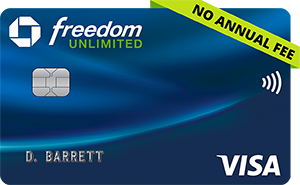Maximizing Your Rewards with the Chase Freedom Unlimited®
The Chase Freedom Unlimited® is a popular and powerful cash back credit card known for its simplicity and flexibility. While the card offers a standard, flat rewards rate on most purchases, it also features bonus categories that allow you to accelerate your earnings. Understanding the card's structure and its place within a broader rewards strategy is key to getting the most out of your spending.
Core rewards earning potential
The Chase Freedom Unlimited® provides a straightforward and consistent way to earn rewards, making it a reliable card for everyday purchases.Understanding the points behind the cash back
While marketed as a cash back card, the rewards are actually earned as Chase Ultimate Rewards points. For Chase Freedom Unlimited® cardholders, these points are worth a fixed value when redeemed for cash back. However, their true value can be unlocked when combined with other cards in the Chase Ultimate Rewards family.Maximizing the rewards beyond the card
The rewards on the Chase Freedom Unlimited® can become significantly more valuable when paired with other Chase cards, such as the Chase Sapphire Preferred® or Chase Sapphire Reserve® Credit Card. This strategy allows for a number of high-value redemption options.Other benefits of the Freedom Unlimited®
Beyond its rewards, the Chase Freedom Unlimited® offers several features that add value to the card without being dependent on changing offers or rates.Is the Freedom Unlimited® right for you?
The Chase Freedom Unlimited® is best suited for individuals who appreciate simplicity and a reliable, solid rewards rate without having to constantly track rotating categories. It is particularly valuable for those who spend a lot on non-bonus purchases. Its true power, however, is unleashed when paired with other Chase cards in a multi-card strategy.Ready to apply?

Chase Freedom Unlimited®
Related Articles
Found this guide helpful? Bookmark it for future reference as you continue your financial journey!
Experian Boost: A Comprehensive Guide to Boosting Your Free Credit Score
FICO® Credit Scores
FICO® Score Ranges:
- Exceptional: 800–850
- Very Good: 740–799
- Good: 670–739
- Fair: 580–669
- Poor: 300–579
What is a Credit Score?
A credit score is a three-digit number, typically ranging from 300 to 850, that predicts your creditworthiness—how likely you are to repay borrowed money on time. Lenders use this score to assess the risk of lending to you and to determine the interest rates and terms of any credit you might receive.
Why is a Credit Score Important?
A credit score is important because it acts as your financial reputation. Lenders, landlords, insurers, and employers use this single number to quickly judge how reliable you are with money. A higher score helps you qualify for loans and credit cards, often securing lower interest rates that can save you significant money. Conversely, a poor credit score can lead to application denials or much higher costs for borrowing, making it a key factor in your overall financial opportunities.
FICO® Credit Score Facts
- Three-Digit Number: Like other credit scores, FICO® Scores are a three-digit number that summarizes a consumer's credit risk.
- Range: Most standard FICO® Scores range from 300 to 850. Higher scores indicate lower credit risk.
- Data Source: FICO® Scores are calculated using data from your credit reports maintained by the three major credit bureaus: Experian, Equifax, and TransUnion. Your score may vary slightly depending on which bureau's data is used.
- Industry Standard: Lenders rely on FICO® Scores for mortgages, auto loans, and credit cards because they provide a consistent, statistically sound assessment of the likelihood that a borrower will repay their debt.
Note: Credit scores are used to represent the creditworthiness of a person and may be one indicator to the credit type you are eligible for. However, credit score alone does not guarantee or imply approval for any credit card product.
